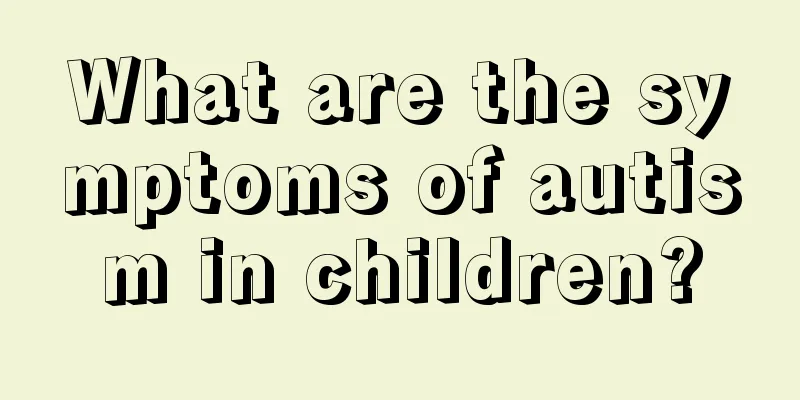What are the blood indicators for roseola infantum?

|
If you are a mother, you definitely need to take good care of your baby, especially the baby's physical health, and you must not be careless. Even in today's high-tech world, some children's diseases cannot be completely cured and may even cost the baby's life. I would like to advise all parents that instead of spending time playing with mobile phones, it is better to learn more about baby's diseases. So, what are the blood indicators for infantile rash? There is no fixed standard for the routine blood test for roseola infantum. The white blood cell count will be high, and the neutrophil lymphocyte count will also be high. Roseola infantum, also known as roseola infantum, is a common viral rash disease in infancy and childhood, more common in infants aged 6 months to 2 years. Infants under 6 months may obtain passive immunity from the mother and rarely get the disease. They have lasting immunity after infection and will not get it a second time. The disease is characterized by acute onset, sudden high fever of up to 40°C for 3-4 days, after which the body temperature suddenly drops. As the body temperature drops, a rash quickly appears, starting from the neck and trunk and quickly spreading to the limbs. The rash is mostly scattered, and a few are fused together. The rash disappears completely after 1-2 days without leaving any pigmentation. The lymph nodes on the neck and occipital surface may be slightly enlarged but not tender, and not as obvious as rubella. Although the patient has a high fever, the systemic symptoms are mild and the spirit is good. There is only mild throat redness sometimes accompanied by cough. The main causes of infantile exanthema are human herpes virus type 6 infection and low immunity of babies, specifically: 1. Human herpes virus type 6 infection. The pathogen of roseola infantum is human herpesvirus type 6. Since the human body will develop immunity after being infected with this virus, reinfection rarely occurs. Therefore, the virus is not only spread by sick babies, but more commonly by healthy carriers among parents and family members, and can be transmitted through respiratory droplets. The fetus can obtain antibodies from the mother through the placenta. The antibody positivity rate is 25% at 4 months after birth, 76% at 11 months, 90% at 5 years old, and 98% at 17 years old. Roseola infantum is more common in babies aged 6-18 months and is rare after the age of 3. It occurs more frequently in the spring and autumn rainy seasons, with no gender difference. 2. The baby has low resistance. Babies under 1 year old are not fully developed and have poor ability to resist diseases. Especially for babies after 6 months old, the levels of anti-infection substances such as antibodies and nutrients such as iron from the mother slowly decrease, while the baby's own ability to synthesize antibodies is still imperfect. Therefore, the baby's ability to resist infectious diseases gradually decreases, and he is prone to various infectious diseases, especially common colds and fevers. |
<<: What's wrong with my baby's wheezing sound in his nasal cavity?
>>: What to do if your baby has milk accumulation
Recommend
What causes excessive sweating in children?
Children always sweat a lot, which makes many par...
My child's urticaria keeps recurring
Young children are a high-risk group for urticari...
How to treat baby's itchy anus with traditional Chinese medicine
Children have limited physical resistance and are...
Treatment for newborn baby laughing while sleeping
When a newborn baby laughs while sleeping, our pa...
How to remove burn scars from children?
Generally speaking, if a child is scalded by boil...
At what age can children brush their teeth?
We all know that if we want to have healthy teeth...
What to do if your child has a headache
With the popularity of mobile phones, almost ever...
Why do children's fingers itch?
It is said that the road of parenting is always f...
What to do if your child's throat is red, swollen and inflamed
Children's physical constitution is inherentl...
Treatment for fever and headache in children
The problem of fever and headache in young childr...
What to do if a child has pimples on his eyelids
During the development and growth stage of childr...
What is considered a fever in children?
It is not uncommon for children to have fever in ...
Can a nine-month-old baby drink soy milk?
If there is a baby at home, then the baby's e...
What to do if baby has red spots on the white of his eyes
After the baby is born, it will be carefully care...
What to do if your four-month-old baby has a runny nose
According to statistics, infants and young childr...









